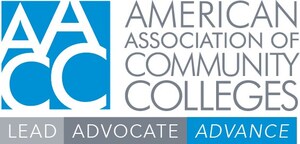Community Colleges Are Key to America's Prosperity, But Will They Have the Resources Needed?
AACC Releases "A Sound Investment: The Community College Dividend" Policy Brief
WASHINGTON, March 9, 2011 /PRNewswire-USNewswire/ -- Community colleges are a critical part of the job training equation that will keep America financially competitive, but they draw a disproportionately smaller piece of the higher education funding pie, says a new policy brief published today by the American Association of Community Colleges (AACC).
Long-known as the low-profile backbone of higher education, community colleges educate nearly half of all undergraduate students and award nearly 925,000 degrees and certificates a year. With close to 1,200 colleges nationwide, they are frequently the most accessible institutions, especially for remote, rural communities.
Yet their hard work receives proportionately less public support than four-year colleges and universities.
In 2007–2008, community colleges received only 27% of total federal, state, and local revenues for higher education. Historically, community colleges have received only 20% of state tax appropriations to higher education.
This funding gap comes at a time when the role of community colleges as job training hubs is becoming even more vital to the U.S. economy. Increasingly, the credentials and skillsets workers need, are found at community colleges. With their flexible class hours, affordable tuition and fast job training programs, community colleges are where workers go to re-train for new jobs.
To keep its economy growing, America will need more qualified workers than ever to complete certificate and degree programs. By 2018, 13.8 million new jobs will need trained workers. Another 33 million jobs are being vacated due to retirement by baby boomers and will need to be staffed.
Most of these jobs will require education beyond the high school level. One third of these jobs will require a bachelor's degree or higher. About 30%, or 13.9 million, of these jobs will require postsecondary education below the bachelor's degree.
Certificate and degree holders will earn more money throughout their lifetimes, pay more taxes, and support their families at higher standards of living. In 2009, annual median earnings for an associate degree holder were $7,020 more than for a high school graduate. For those who completed some college, such as a certificate, the annual gain in median earnings compared to that for a high school graduate was $3,796.
Moreover, earnings for some sub-baccalaureate programs outstrip even those from a bachelor's degree. In fact, 23% of bachelor's degree holders earn less than those with a license or certificate and 25% of those with bachelor's degrees earn less than those with associate degrees.
The community college dividend extends beyond students to communities. Community colleges graduates are very likely to stay in the community, providing a strong return on investment. The resulting knowledge-based workforce helps to revitalize and reshape local economies through attracting and retaining business and industry.
"Investing in community colleges is smart business sense. America is becoming ever more reliant on community colleges to fuel its economic engine and keep the American dream attainable," said Dr. Walter Bumphus, president of the AACC. "More public support is needed for our community colleges, not less."
The full policy brief and an executive summary are available at www.aacc.nche.edu. This policy brief was supported in part by Lumina Foundation for Education. Lumina's goal is to increase the percentage of Americans who hold high-quality degrees, credentials, and certificates to 60% by 2025.
Headquartered in Washington, D.C., the American Association of Community Colleges is the leading advocacy organization representing close to 1,200 community, junior and technical colleges nationwide. Community colleges are the largest sector of higher education, enrolling 12.4 million credit and non-credit students each year. To learn more about the AACC, visit www.aacc.nche.edu.
SOURCE American Association of Community Colleges
WANT YOUR COMPANY'S NEWS FEATURED ON PRNEWSWIRE.COM?
Newsrooms &
Influencers
Digital Media
Outlets
Journalists
Opted In





Share this article